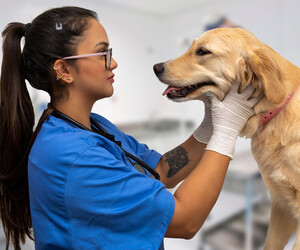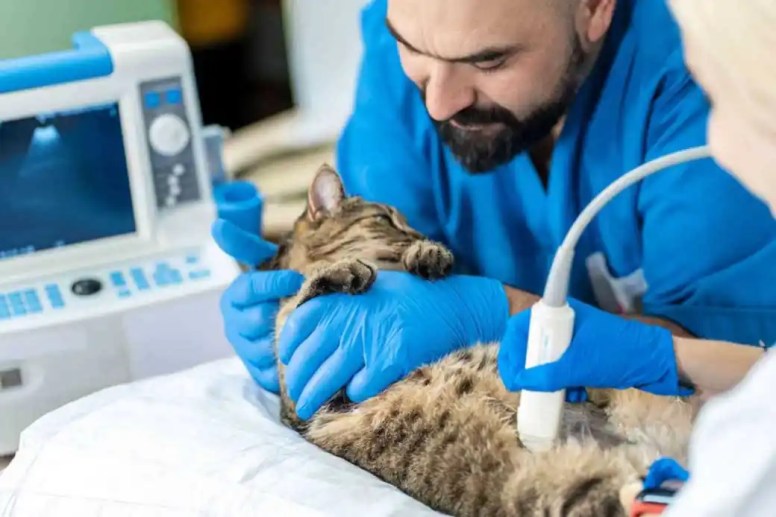Shield Your Pet's Future with Timely Pet Vaccinations from a Professional Vet
Vaccination Standards From Your Trusted Veterinarian
Inoculation standards offered by your trusted vet play an essential duty in safeguarding your animal's health and wellness and health. Core vaccinations are fundamental for all animals, while non-core injections can be tailored to certain way of lives and environmental exposures. Recognizing the nuances of vaccination timetables, which begin as early as six to 8 weeks, is important for optimum security. Additionally, dealing with usual mistaken beliefs surrounding vaccinations can even more improve family pet owners' self-confidence in these precautionary procedures. As we discover these crucial elements, it becomes significantly clear why regular appointments with your vet are vital for informed decision-making.

Relevance of Inoculations
Vaccinations play a critical role in protecting animals against a range of avoidable illness. By promoting the immune system to recognize and fight certain microorganisms, vaccines considerably minimize the occurrence of transmittable illness that can influence an animal's wellness and durability. Not only do inoculations secure private animals, yet they likewise add to herd resistance, thus reducing the total prevalence of diseases in the pet dog population.
Prompt vaccinations help to alleviate the spread of diseases such as rabies, parvovirus, and distemper, which can have severe consequences for both humans and pet dogs. Furthermore, vaccinations are usually a demand for boarding centers, brushing solutions, and canine parks, making them crucial for those who want to socialize their animals.

Core Injections for Pet Dogs
While the certain vaccination demands of animals can vary based upon individual aspects, core injections are globally advised to protect versus the most common and serious illness (Vet Enterprise). Core vaccines are those regarded important for all pet dogs, despite their way of living or geographic area, as they protect versus highly transmittable and potentially deadly health problems
For pet dogs, the core vaccinations consist of those for canine distemper, parvovirus, adenovirus (liver disease), and rabies. Adenovirus can result in liver illness, while rabies is a zoonotic illness that postures a danger to both pet dogs and people.
In pet cats, core vaccines encompass feline panleukopenia, feline calicivirus, feline herpesvirus (rhinotracheitis), and rabies. Feline panleukopenia is a highly infectious viral condition that impacts the body immune system and intestinal tracts. Calicivirus and herpesvirus are major factors to upper respiratory infections in pet cats, while rabies stays an essential worry for public health and wellness.
Seek advice from your veterinarian to ensure your animals obtain their core vaccinations on routine.
Non-Core Vaccines Explained
Non-core vaccines are customized to deal with details threats related to a family pet's environment, way of living, and exposure to certain conditions. Unlike core vaccinations, which are widely advised for all pet dogs, non-core vaccinations are thought about based upon private scenarios. These vaccines are especially crucial for pets that may encounter one-of-a-kind microorganisms as a result of their geographical area, travel practices, or activities.
Examples of non-core vaccinations include those for Bordetella bronchiseptica, which is linked to kennel cough, and Lyme disease, triggered by ticks. Pets that frequently connect with other animals, such as those in boarding centers, canine parks, or grooming settings, might take advantage of Bordetella inoculation. pop over to these guys If you live in an area where Lyme illness is common, vaccinating versus this condition can be a prudent selection for outdoor-loving pet dogs.
Other non-core vaccines may include those for leptospirosis, canine flu, and feline leukemia, depending on the particular danger elements existing. It is important to have a complete conversation with your veterinarian regarding your animal's way of living and the prospective requirement for these vaccines, making sure a customized inoculation method that best protects your hairy buddy.
Inoculation Arrange Review

As pet dogs mature, it is crucial to comply with the recommended booster inoculations. Pet Vaccinations. For grown-up pets, core vaccines are commonly offered each to three years, relying on the particular vaccination and regional guidelines. Non-core vaccines might be encouraged based on way of living aspects and local disease frequency, necessitating a tailored technique
Normal vet exams are essential for updating inoculation schedules. Your vet can provide advice on one of the most appropriate booster shots for your pet, factoring in age, health and wellness condition, and environmental threats. By staying aggressive and notified, pet dog owners can ensure their furry friends receive efficient and timely inoculations, thereby guarding their health and wellness and wellness throughout their lives.
Common Myths Regarding Injections
Misunderstandings regarding pet inoculations can cause confusion and reluctance among pet proprietors regarding the immunization process. One prevalent misconception is that vaccinations are unneeded for site here interior family pets. While it holds true that interior animals encounter reduced risks, they are not completely immune to conditions, as microorganisms can be presented through various methods, consisting of human clothes and various other family pets.
Another false impression is that vaccines can trigger the conditions they aim to stop. In reality, many vaccinations consist of inactivated or undermined pathogens, which can not create illness in healthy pets. Some animal proprietors likewise believe that their pets must not be immunized if they are currently healthy and balanced; nonetheless, vaccinations are an aggressive procedure that helps prevent the beginning of illness.
In addition, numerous family pet proprietors fear that injections will lead to long-lasting health Read More Here and wellness issues. The advantages of vaccination-- safeguarding animals from possibly deadly diseases-- far surpass the dangers.
Conclusion
In recap, adherence to inoculation guidelines is critical for guaranteeing the health and wellness and durability of family pets. Resolving usual myths surrounding inoculations further reinforces the value of informed decision-making in pet treatment.
Not only do inoculations protect individual pets, however they likewise contribute to herd resistance, thereby reducing the total frequency of illness in the family pet populace.
False impressions about family pet inoculations can lead to confusion and unwillingness among family pet owners concerning the booster shot procedure. While it's real that interior pets deal with reduced threats, they are not totally immune to conditions, as microorganisms can be introduced via different means, consisting of human clothes and other family pets.
Some pet proprietors likewise think that their animals must not be immunized if they are currently healthy; nonetheless, inoculations are an aggressive action that aids prevent the beginning of health problem.
The benefits of vaccination-- shielding animals from potentially lethal diseases-- much outweigh the risks.